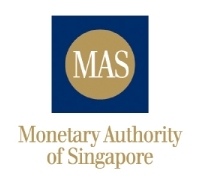Reason to trust

How Our News is Made
Strict editorial policy that focuses on accuracy, relevance, and impartiality
Ad discliamer
Morbi pretium leo et nisl aliquam mollis. Quisque arcu lorem, ultricies quis pellentesque nec, ullamcorper eu odio.
 Singapore has seemingly been a utopia for new bitcoin ATM launches, but that doesn’t mean it’s a free-for-all. The Monetary Authority of Singapore released a statement on Thursday indicating plans to regulate virtual currency intermediaries. The reason? No surprise here: to address potential money laundering and terrorism financing.
Singapore has seemingly been a utopia for new bitcoin ATM launches, but that doesn’t mean it’s a free-for-all. The Monetary Authority of Singapore released a statement on Thursday indicating plans to regulate virtual currency intermediaries. The reason? No surprise here: to address potential money laundering and terrorism financing.
The statement outlines that any intermediaries that facilitates that buy, sell, or allow the exchange of digital currency for fiat currency shall first verify the identity of their customer. These outfits are also expected to report suspicious activity to authorities as required.
As noted:
Singapore, like most jurisdictions, does not regulate virtual currencies per se, as these are not considered as securities or legal tender. MAS’ regulation of virtual currency intermediaries pertains specifically to the money laundering and terrorist financing risks they pose. It does not extend to the safety and soundness of virtual currency intermediaries nor the proper functioning of virtual currency transactions. Investors in virtual currencies will not have the safeguards that investors in securities enjoy under the Securities and Futures Act and the Financial Advisers Act.
“MAS is taking a targeted regulatory approach to virtual currencies to specifically address money laundering and terrorist financing risks,” said Ong Chong Tee, Managing Deputy Director at the Monetary Authority. “Consumers and businesses should take note of the broader risks that dealing in virtual currencies entails and should exercise the necessary caution.”
Said regulation will put the city-state at the forefront of regulation, but their work isn’t done. The Authority said they will continue to “monitor closely the development and implications of virtual currencies as well as evolving regulatory approaches taken towards virtual currencies by major jurisdictions.”
Should the need arise, the Authority said it is prepared to incorporate additional measures.


























